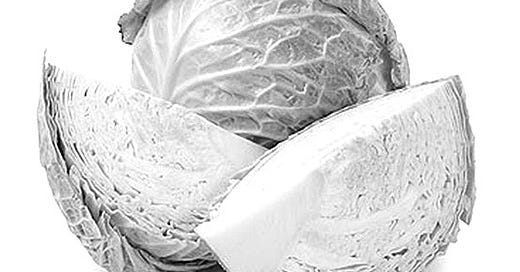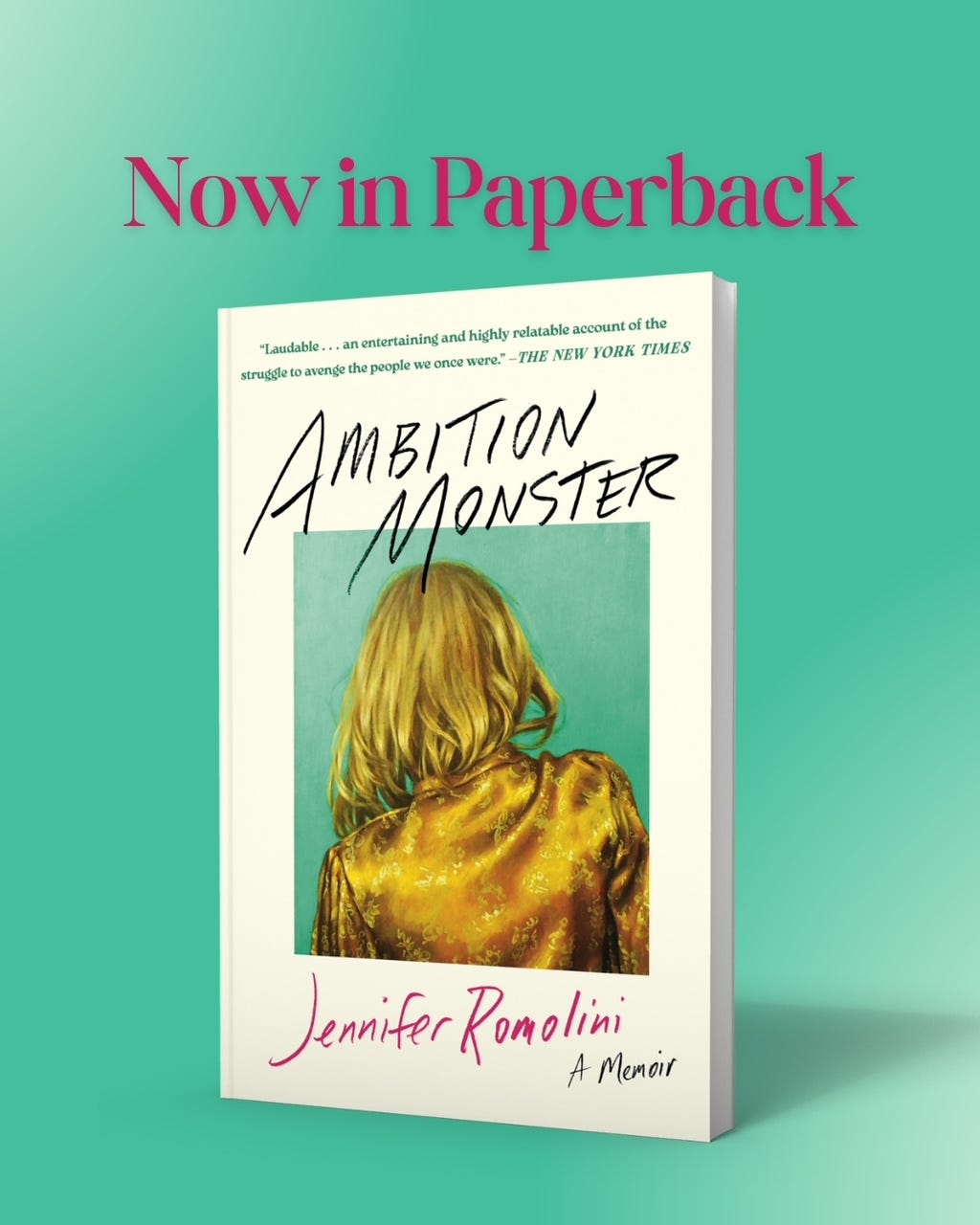Programming note: To commemorate the paperback release, I’m running deleted chapters/scenes from the first draft of Ambition Monster all week.
Today’s is about not trusting my memory as a writer. Maybe the most difficult part of this book was writing about my parents. I was super concerned about getting their story right and, even more, about hurting people I love if I didn’t. Guilt, anxiety and bad-kid anguish cast a pall over the entire writing process — to the point that, in these first drafts, I kept second guessing and beating myself up, even in the text. My editor (bless her) made me stop apologizing for my memories and minimizing my experiences (this was a frequent editorial note) and she cut this entire cabbage lady scene wholesale. When I read it now, I can see what a hedge it was, a distraction, a “hey, look anywhere but at me!” device I attempted again and again early on.
This kind of personal excavation can be harrowing, you’re always grasping for levity, throwing in a joke to protect the reader from your pain. The airport bit came at the beginning of the book and, even though I still think it’s funny, I can see why it was cut. A big part of the job of writing a memoir is to expose yourself. These kinds of books simply don’t work when they’re written by someone who’s actively trying to hide.
The work of my life has, more or less, been storytelling. In twenty years of “content creation,” I’ve told stories for slick magazines and musty old newspapers, janky websites and sophisticated newsletters about everything from what it’s like to try out for the Rockettes to what it’s like to be a painter who only paints while on LSD. I wrote about frivolities: how to choose the perfect lipstick, how to find the perfect jeans, the best pedicure, the best hot-spring spas, the best places to eat if you happened to be in Buenos Aires one time.
I spun heavy yarns about pregnancy loss and pregnancy gain, parenting, divorce, chronic and fleeting pain. I told stories about 70s sex symbols losing their way, about the youngest hottest star of the moment and her favorite belt, about in-demand sweatshirts, designer garden supplies, books you should read to your kids, books to not read to your kids, plastic surgery, pyrotechnics, shit and shitting, art and artists. I also wrote stories about love.
In all my years of writing and editing and checking the facts in writing and editing, I learned this: Storytelling is an act of remembering and storytellers always misremember, always get things wrong. As humans, this is perhaps our oldest and truest truth. We’re too hurt or old or tired or anxious or drunk to remember most things right; we filter details through our messy, nutty egos; our ideas of who we think we’re supposed to be; who we want the world to see. The closest thing any of us has to an honest memory is a neutral one. This is perhaps because — unlike our profound joys, our cataclysmic agonies, even our tiny, petty gripes — neutral memories, the ones that mean little to our lives but are striking enough to lock into our brains, are rare.
Once I was at an airport, on my way to a work trip, waiting at the gate with a gang of fellow early-arrivers. I was in my late 30s then, around the age when life starts to show you in myriad, not-cute ways just how little control you actually have over it; a time when dumb mistakes — like missing a flight — become somewhat intolerable, at least if you’ve started choke-holding your experiences in the name of real adulthood, equating “responsible decision making” with your self worth. On this day, none of the neurotic worst-cases-scenarios I’d prepared for had, in fact, occurred and so I was Airport Dad — at the gate almost a full two hours ahead of when we had to board.
Sitting across from me was a fit middle-aged woman who may have been, and for our purposes is, named Nancy. Nancy wore a performance fleece vest over a crisp white button down. Nancy’s hair was combed into a high, tight ponytail with an intentional curling-ironed curl on the end. Nancy was a sporty-tan and extra-white-lady blonde wearing no makeup and kept, to the point of distraction, getting up from her seat in order to stretch.
After completing her calisthenics, Nancy turned her back to me and rigorously rustled through her corporate-branded rucksack. When she found what she was looking for, she sat back down in her seat and the object she’d been seeking was revealed: A half head of raw, pale-green cabbage the size of a human cranium, held with both of her tan hands.
For the rest of our waiting time, Nancy nibbled her cabbage head with vigor, like this was as normal as chomping on an apple, like I imagine a bunny eats corn, methodical and controlled. The cabbage took a long time to bite through and chew. Nancy gnawed against her cabbage until it was just a nub of flakes. She placed the remaining flakes in a Ziplock bag, zipped it up. Then it was time to board.
The memory of Nancy and her cabbage means nothing to my life but I will never forget one detail of it. With my memories of my parents, I’m not quite as sure. We were not, are not, the type of family to engage in the hard conversations of adulthood, not much for accountability or a true reckoning of the past. Because of this, my childhood memories are still somewhat childish. All of which is to say: I’m trying hard to get this right.






I'm sorry, but Nancy needs a prequel. I mean, what sort of messy feelings was she digesting?? What if Jenn and Nancy meet in 2025? is she MAGA? Former vegan now a cattle farmer? Lolzz, thanks for sharing these deletions Jenn, how fun!😅❤️
Oh I loved this. The size of half a human cranium! Eating it like a bunny! I know that Nancy. And I totally get it. I guess I understand why it had to be cut from the book, but I'm so glad I am used to the podcast where these things get left in. The tangents are where the soul and the humor are.